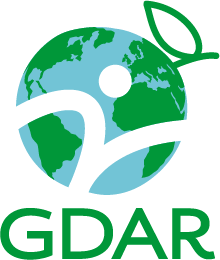A group of Early Career Researchers from the Global Diet and Activity Network came together to reflect on their experiences of working in the network in low- and middle-income country settings. In this first of a series of 3 blogs, they share their thoughts on some of the opportunities and challenges of being an early career researcher. They hope this will help others on their academic journeys.
By Joanne Smith, Feyisayo Odunitan-Wayas, Gudani Mukoma, Rosemary Musuva, Charles Lwanga, Edwin Ngwa, Damilola Odekunle, as told to Oliver Francis
To be an Early Career Researcher (ECR) is to be at a pivotal time and place in your career. As ECRs, we are only a few steps into our journeys as researchers and have much to learn, but at the same time we face great pressure to deliver on a range of research outputs. (The meaning of ‘ECR’ can vary across contexts: we use the term here broadly as researchers who may have completed a PhD, but are yet to secure a research leadership position.)
GDAR was launched in 2017 with funding from the National Institutes of Health and Care Research (NIHR). Its aim is to generate research that can help prevent non-communicable diseases in low- and middle-income countries (LMICs). A crucial part of this process is to build research capacity, and to nurture a new generation of researchers.
As a consequence, the Network now has a cadre of highly ambitious, hardworking, and intelligent (if we say so ourselves!) early career researchers. Being part of this group has presented us with many opportunities and positives about the ways we can work. But this work also has its difficulties, and possibilities for improvement.
International opportunities, global inequalities
Working in academia in LMICs is exciting and varied, as our nations are going through a number of different transition of politics, society, technology and climate, all in the wider context of accelerating globalisation. This presents a rich resource of urgent research questions in need of answering, with many opportunities for ECRs: studies to be developed, data to be analysed and interpreted, reports to be written, and publications to be crafted. All of these can be moments and processes of learning for ECRs.
While some institutions have increasing amounts of resources and support to develop research careers, this is not universally the case, and LMIC research institutions remain underfunded in comparison to those in the Global North. For ECRs this can translate as a lack of office and lab space, lack of funding and research sponsorship, and a lack of opportunities for publishing and career progression. Indeed, there are many events and programmes targeting ECRs, but they tend to be promoted and made available to researchers in the Global North. Even if LMIC ECRs are aware of opportunities, the funding to take them up may not be easily accessible. This can restrict opportunities for ECRs to make new connections that are often necessary to locate and attract new sources of funding – so the problem becomes circular.
Strengths (and weaknesses) in numbers
In GDAR, researchers come from many backgrounds and disciplines, and we have had many opportunities to see things from different points of view and learn together as we grow in our careers. And we are lucky to live in a digital world, where so many of the tools necessary to learn different skills, knowledge and platforms are available online across the world.
To support this, it has been essential to have regular meetings among us – both virtual and face-to-face, professional and social. Still, the world can feel like a fragmented place, and ECRs would benefit from further opportunities to network and learn from their peers, and more funds that can be accessed to support conference attendance.
We are part of a global community, but however well supported we are by our peers and colleagues, being an ECR can still feel lonely, and it is definitely hard work! The hours can be long, and we are often bombarded with tasks from every direction while at the same time trying to find clear time and space for writing those all-important research articles and grant applications. While help from colleagues may be available, sometimes delays are inevitable as we are often not senior enough to take the decisions that would clear blockages.
Confronting all these difficulties requires a range of skills that we are still learning, but ironically the pressure means that it can be hard finding protected time for training. And, as well as trying to learn new things ourselves, many of us are also teaching others. This process can of course help us cement and re-examine our own knowledge, but sadly with limited resources we often have to teach outside areas of our interest and sometimes even our expertise.
A well-trodden path, but a different view ahead
We are very aware that many have gone on a journey like ours before us. Being an ECR affords us the opportunity to be guided by senior researchers: they give us many opportunities to face challenges and to learn and grow professionally.
As well as formal structures of management, mentorship by senior researchers can be a vehicle to transition ECRs in and out of different research projects that they would typically not have had the opportunity to participate in on their own. The diversity of GDAR means that we have had chances to learn from many experts in different areas of research interests.
More broadly, being surrounded by seasoned scientists who can offer advice and fresh perspectives does much to enrich our academic experiences. It has been an exhilarating experience to be involved in ground-breaking research projects that are producing evidence to inform real world changes that can affect health across LMICs.
Despite all this, we do often feel aware of our place in the pecking order. We are the engine room of many research projects and can feel at the mercy of work being handed down to us by senior researchers – work that may not align with our interests or support our own development. Indeed, sometimes it can be hard to find and develop our interests and specialism to start with. We may find ourselves following the research path of our mentor or manager without putting proper thought into what we want to focus on as researchers.
But the future is not like the past, and surely the answer is that our journey has to be one of self-discovery not a guided tour. As well as completing the ‘non-negotiables’, we need to be thoughtful about which mentors we seek to pair with, and which collaborations to put ourselves forward for. We need to learn management as well as research skills. And we need to get wise to the political landscape in which we operate – both the landscape of academia and its funders, and the wider landscape of public health.
Finally, we need to raise our voices in support of behaviours, structures and funding that will support the proper and fruitful development of ECRs across LMICs. This might be in the form of more senior researchers in LMICs making themselves available for mentoring across disciplines; or universities and funders prioritising opportunities with greater equity so that ECRs in LMICs can compete on a level playing field with those in the Global North; or opportunities for capacity building outside of our current environment.
Where next?
As a group of ECRs, the process of writing this blog has been interesting in that it has shown us that we all face many of the same challenges, and all of us have provided each other with new perspectives about how we might tackle them.
Sometimes the ask is a hard one. Sometimes the way ahead is not clear. Sometimes we feel lost and overwhelmed. But we know we will grow professionally and personally through the challenges we face along the way. And we know that the opportunities that lie ahead – for us, for research, for developing sustainable solutions to health challenges – are worth the struggle of exploration.
In the next blog post we will be looking at being an ECR within the LMIC political context, and the gender equity issues that may influence opportunities.

